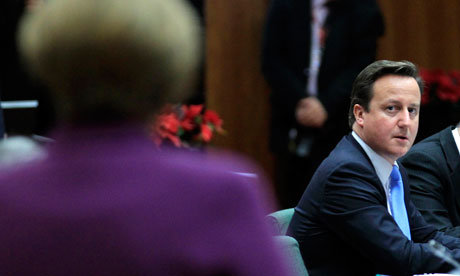Housing activity accounts for 29% of GDP, but Evergrande’s debt crisis is sign that things could soon change writes George Magnus in The Guardian
 The Kangbashi district of Ordos in Inner Mongolia, famed for being a ‘ghost city’, has since filled up a bit. Photograph: Qilai Shen/Corbis/Getty
The Kangbashi district of Ordos in Inner Mongolia, famed for being a ‘ghost city’, has since filled up a bit. Photograph: Qilai Shen/Corbis/Getty
In China today, the buzz is all about how the government there too has stumbled into an energy crisis with widespread power cuts. Yet this and other supply shocks will eventually pass, while the $300bn (£218bn) of debt enveloping China’s second biggest property developer, Evergrande, is of greater significance. It suggests China’s long housing boom is over, and bodes badly for the increasingly troubled economy, with implications for the rest of the world too.
China’s real estate market has been called the most important sector in the world economy. Valued at about $55tn, it is now twice the size of its US equivalent, and four times larger than China’s GDP. Taking into account construction and other property-related goods and services, annual housing activity accounts for about 29% of China’s GDP, far above the 10%-20% typical of most developed nations.
Real estate busts can be as painful as the preceding booms were exuberant. China, however, has only known growth as its previous housing welfare system was transformed from the 1990s onwards. A protracted housing downturn is now poised to add to the Chinese economy’s other mounting headwinds, with significant and unpredictable implications.
The signs were there 10 years ago, when the spotlight fell on China’s “ghost cities”. One of the most publicised was the Kangbashi district of the city of Ordos in Inner Mongolia, famed for its gleaming but empty office blocks and apartment towers, barren boulevards, deserted highways, and vacant shops and plazas. However, ghost cities turned out to be more bad investment than overinvestment. Ordos and similar cities remained eyesores for a while but have since filled up a bit.
Aside from ghost cities, the property sector prospered in the 2000s and 2010s because Beijing not only appeared to want a maturing real-estate market, but promoted it hard to underpin growth and the formation of a propertied, urban middle class. Developers had no qualms about borrowing heavily, because credit was freely available and they felt the government would always support the market if needed.
By the time the pandemic struck in 2020, it had certainly become a case of overinvestment. About a fifth of China’s housing units now lie vacant, often because they are too expensive for the population, 40% of whom earn barely 1,000 yuan (£115) a month. For second and third homes, the vacancy rates are higher still.
Meanwhile, since 2017, Beijing’s attitude towards rampant credit creation and the financialisation of housing – treating it as a commodity rather than as somewhere to live – has undergone a sea change. Xi Jinping told that year’s Communist party congress that “houses are built to be inhabited, not for speculation”, and that action would be taken to curb demand, overbuilding and rising home prices. Tighter mortgage terms and restrictions on multiple-home ownership followed.
Last year, regulators tightened regulations on developers designed to curb debt, preserve cash, and limit overbuilding. The government is sensitive to high housing costs, which are deemed to be excessive and a disincentive to larger family size. The crackdown chimes with its recent “common prosperity” drive, ostensibly designed to address rampant inequality, which has also seen a regulatory clampdown on big tech firms such as Alibaba, Didi and Tencent.
Those changes have exposed the financial fragility of developers and moved the precarious housing bubble centre stage. Even if, as seems likely, the Chinese authorities can keep the fallout from Evergrande from becoming a Lehman-type shock, a downturn in the property and construction sector could well aggravate China’s looming economic slowdown. Some expect China’s growth rate to slide to 1%-2%, for a while at least.
Banks and property companies are likely to restrict building activity and financing as they restructure broken balance sheets and Chinese households will be wary about taking on new mortgages. Household debt has risen from about $2tn in 2010 to more than $10tn last year, with the ratio of debt to disposable income surging to about 130%, significantly higher than in the US. With incomes rising only slowly, especially in the gig or informal economy, which now accounts for about three-fifths of employment, households are likely to remain on the back foot.
Demographics, especially the low 1.3 fertility rate, are also working against the economy. China’s working age and main home buying age groups are declining. The number of prime-age, first-time homebuyers – those in the 25-39 bracket – is set to fall by 25% in the next 20 years from 327 million to 247 million. The urbanisation rate, moreover, which doubled to 64% between 1996 and 2020, is bound to slow. There will be fewer marriages, fewer children and lower household formation.
In the last 10 to 15 years, local and provincial governments could always be relied upon to boost real estate and infrastructure spending to get the economy out of a hole if needed. They are already heavily in debt, however, and under pressure to find resources to support Xi’s “common prosperity” programme.
It is harder to predict what will happen to home prices in China. If they do, for the first time, decline far or over any length of time, expect to see much bigger problems emerge for banks and for consumers as negative wealth effects spread among the urban population.
We do not know how well China will manage to wean itself off real estate construction and services, but it will not be easy or painless. There will be important consequences for China’s economy, possibly its leadership, and the way China projects its influence abroad. Stay tuned.
 The Kangbashi district of Ordos in Inner Mongolia, famed for being a ‘ghost city’, has since filled up a bit. Photograph: Qilai Shen/Corbis/Getty
The Kangbashi district of Ordos in Inner Mongolia, famed for being a ‘ghost city’, has since filled up a bit. Photograph: Qilai Shen/Corbis/Getty In China today, the buzz is all about how the government there too has stumbled into an energy crisis with widespread power cuts. Yet this and other supply shocks will eventually pass, while the $300bn (£218bn) of debt enveloping China’s second biggest property developer, Evergrande, is of greater significance. It suggests China’s long housing boom is over, and bodes badly for the increasingly troubled economy, with implications for the rest of the world too.
China’s real estate market has been called the most important sector in the world economy. Valued at about $55tn, it is now twice the size of its US equivalent, and four times larger than China’s GDP. Taking into account construction and other property-related goods and services, annual housing activity accounts for about 29% of China’s GDP, far above the 10%-20% typical of most developed nations.
Real estate busts can be as painful as the preceding booms were exuberant. China, however, has only known growth as its previous housing welfare system was transformed from the 1990s onwards. A protracted housing downturn is now poised to add to the Chinese economy’s other mounting headwinds, with significant and unpredictable implications.
The signs were there 10 years ago, when the spotlight fell on China’s “ghost cities”. One of the most publicised was the Kangbashi district of the city of Ordos in Inner Mongolia, famed for its gleaming but empty office blocks and apartment towers, barren boulevards, deserted highways, and vacant shops and plazas. However, ghost cities turned out to be more bad investment than overinvestment. Ordos and similar cities remained eyesores for a while but have since filled up a bit.
Aside from ghost cities, the property sector prospered in the 2000s and 2010s because Beijing not only appeared to want a maturing real-estate market, but promoted it hard to underpin growth and the formation of a propertied, urban middle class. Developers had no qualms about borrowing heavily, because credit was freely available and they felt the government would always support the market if needed.
By the time the pandemic struck in 2020, it had certainly become a case of overinvestment. About a fifth of China’s housing units now lie vacant, often because they are too expensive for the population, 40% of whom earn barely 1,000 yuan (£115) a month. For second and third homes, the vacancy rates are higher still.
Meanwhile, since 2017, Beijing’s attitude towards rampant credit creation and the financialisation of housing – treating it as a commodity rather than as somewhere to live – has undergone a sea change. Xi Jinping told that year’s Communist party congress that “houses are built to be inhabited, not for speculation”, and that action would be taken to curb demand, overbuilding and rising home prices. Tighter mortgage terms and restrictions on multiple-home ownership followed.
Last year, regulators tightened regulations on developers designed to curb debt, preserve cash, and limit overbuilding. The government is sensitive to high housing costs, which are deemed to be excessive and a disincentive to larger family size. The crackdown chimes with its recent “common prosperity” drive, ostensibly designed to address rampant inequality, which has also seen a regulatory clampdown on big tech firms such as Alibaba, Didi and Tencent.
Those changes have exposed the financial fragility of developers and moved the precarious housing bubble centre stage. Even if, as seems likely, the Chinese authorities can keep the fallout from Evergrande from becoming a Lehman-type shock, a downturn in the property and construction sector could well aggravate China’s looming economic slowdown. Some expect China’s growth rate to slide to 1%-2%, for a while at least.
Banks and property companies are likely to restrict building activity and financing as they restructure broken balance sheets and Chinese households will be wary about taking on new mortgages. Household debt has risen from about $2tn in 2010 to more than $10tn last year, with the ratio of debt to disposable income surging to about 130%, significantly higher than in the US. With incomes rising only slowly, especially in the gig or informal economy, which now accounts for about three-fifths of employment, households are likely to remain on the back foot.
Demographics, especially the low 1.3 fertility rate, are also working against the economy. China’s working age and main home buying age groups are declining. The number of prime-age, first-time homebuyers – those in the 25-39 bracket – is set to fall by 25% in the next 20 years from 327 million to 247 million. The urbanisation rate, moreover, which doubled to 64% between 1996 and 2020, is bound to slow. There will be fewer marriages, fewer children and lower household formation.
In the last 10 to 15 years, local and provincial governments could always be relied upon to boost real estate and infrastructure spending to get the economy out of a hole if needed. They are already heavily in debt, however, and under pressure to find resources to support Xi’s “common prosperity” programme.
It is harder to predict what will happen to home prices in China. If they do, for the first time, decline far or over any length of time, expect to see much bigger problems emerge for banks and for consumers as negative wealth effects spread among the urban population.
We do not know how well China will manage to wean itself off real estate construction and services, but it will not be easy or painless. There will be important consequences for China’s economy, possibly its leadership, and the way China projects its influence abroad. Stay tuned.



